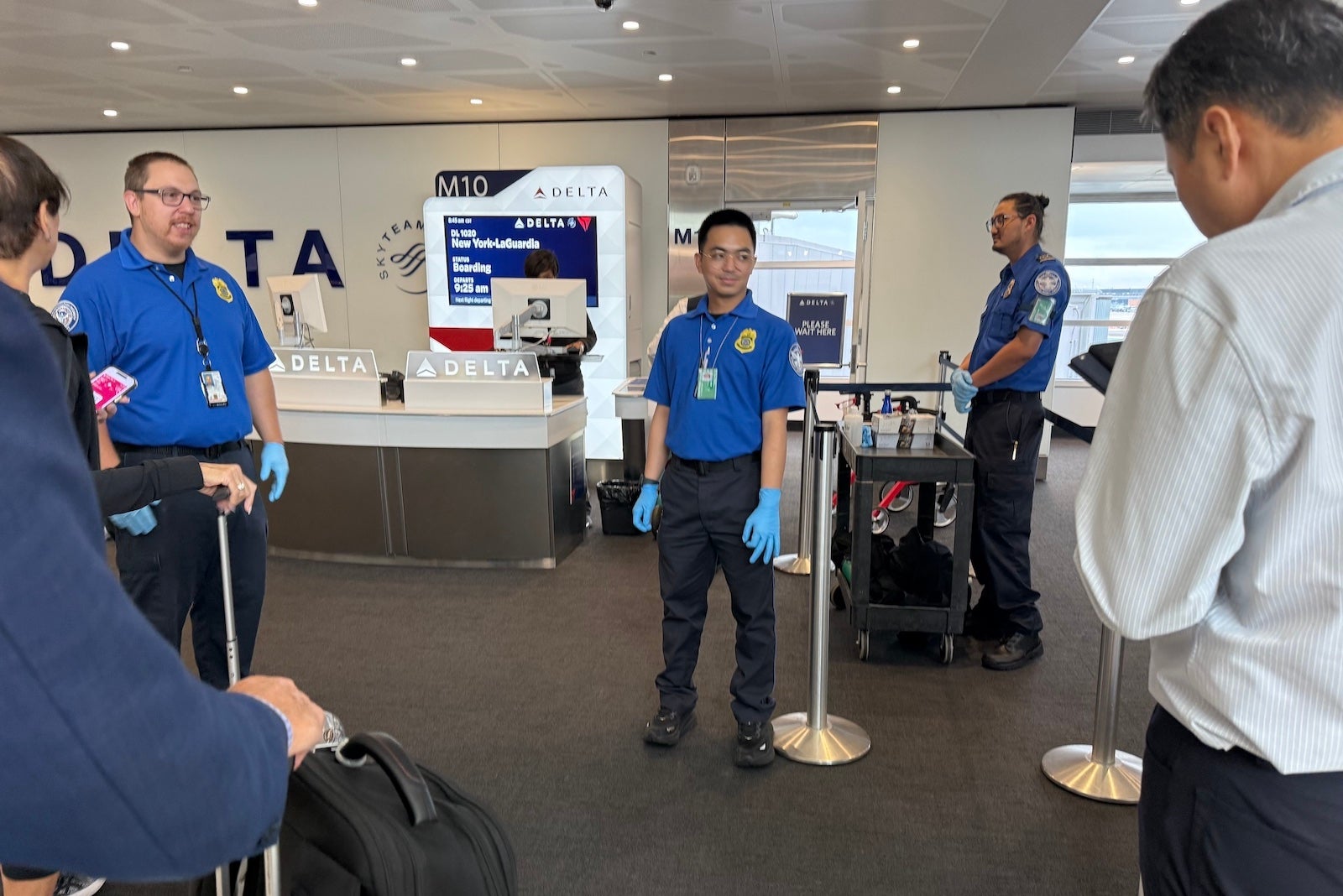
If you’ve had to pull out your ID at the airport gate for a security recheck, you’re not alone.
In recent weeks, it appears the Transportation Security Administration has upped its screening protocols — at least temporarily — for certain flights.
In some cases, the TSA has rechecked travelers’ IDs right at the gate. For other departing flights, agents have conducted secondary bag searches on the jet bridge.
While the TSA has long had such tactics in its security arsenal, the extra screenings appear to be happening more frequently this month. And they’ve occurred most often on flights to the New York City area, based on anecdotal experiences shared by a slew of TPG staffers, readers and frequent flyers we’ve spoken with over the past few weeks.
Exactly what is going on?
So far, the TSA hasn’t specifically commented on the heightened protocols, instead referring broadly to its “multiple layers” of security to keep travelers safe.
But an aviation industry source tells TPG the “enhanced measures” experienced recently are due to the ongoing United Nations General Assembly in New York — and a “common practice” implemented at airports ahead of major high-security events.

What to know about TSA secondary screening
What should you expect if you’re on one of these flights?
In all likelihood, you’ll need to pull out your ID again. It’s also possible agents will want to briefly sift through your carry-on bag.
I encountered secondary screening on a Sept. 8 flight from Raleigh-Durham International Airport (RDU) to John F. Kennedy International Airport (JFK). As I prepared to board, the gate agent announced that the TSA would be rechecking every flyer’s identification as they proceeded to have their boarding pass scanned.
That same day, Senior Editorial Director Nick Ewen and Senior Credit Cards Editor Giselle Gomez had similar experiences on New York-bound flights from other U.S. cities.
So did TPG’s Clint Henderson, twice this month — including one encounter at Chicago’s O’Hare International Airport (ORD) he captured, below, on camera.

And Tuesday evening, some travelers faced extra bag checks on the jet bridge on Senior Hotels Reporter Tanner Saunders‘ flight from Dallas Fort Worth International Airport (DFW) to New York’s LaGuardia Airport (LGA).
“TSA agents were stopping people and searching their bags,” Saunders said.
Why is the TSA rechecking some travelers’ IDs?
Secondary TSA checks aren’t unprecedented.
Since its founding in the wake of the Sept. 11, 2001, terror attacks, the TSA has periodically conducted secondary screening of travelers even after they pass through checkpoints — including at the gate.
But most travelers seldom encounter such additional screenings — though added security checks can happen when there’s a major event (like the U.N. General Assembly) taking place.
“Nothing is more important to TSA than ensuring the security of our nation’s transportation systems and keeping the traveling public safe,” a TSA spokesperson said in its only statement addressing our questions. “TSA’s multiple layers of security are both seen and unseen to keep threats at bay and our transportation systems secure.”
A myriad of TSA changes in 2025
2025 has brought a variety of changes to the TSA’s screening protocols.
In July, the agency ditched its long-standing requirement that travelers in the standard security lanes remove their shoes.
And that came two months after the launch of Real ID requirements, which were intended to create a more unified standard for verifying passengers’ identification at airports.
As for the ongoing security checks on New York-bound flights, the U.N. General Assembly is scheduled to run through the end of this month.
Related reading:
- The best time to book flights for the cheapest airfare
- Best airline credit cards
- What exactly are airline miles, anyway?
- 6 real-life strategies you can use when your flight is canceled or delayed
- Maximize your airfare: The best credit cards for booking flights
- The best credit cards to reach elite status
Editorial disclaimer: Opinions expressed here are the author’s alone, not those of any bank, credit card issuer, airline or hotel chain, and have not been reviewed, approved or otherwise endorsed by any of these entities.

